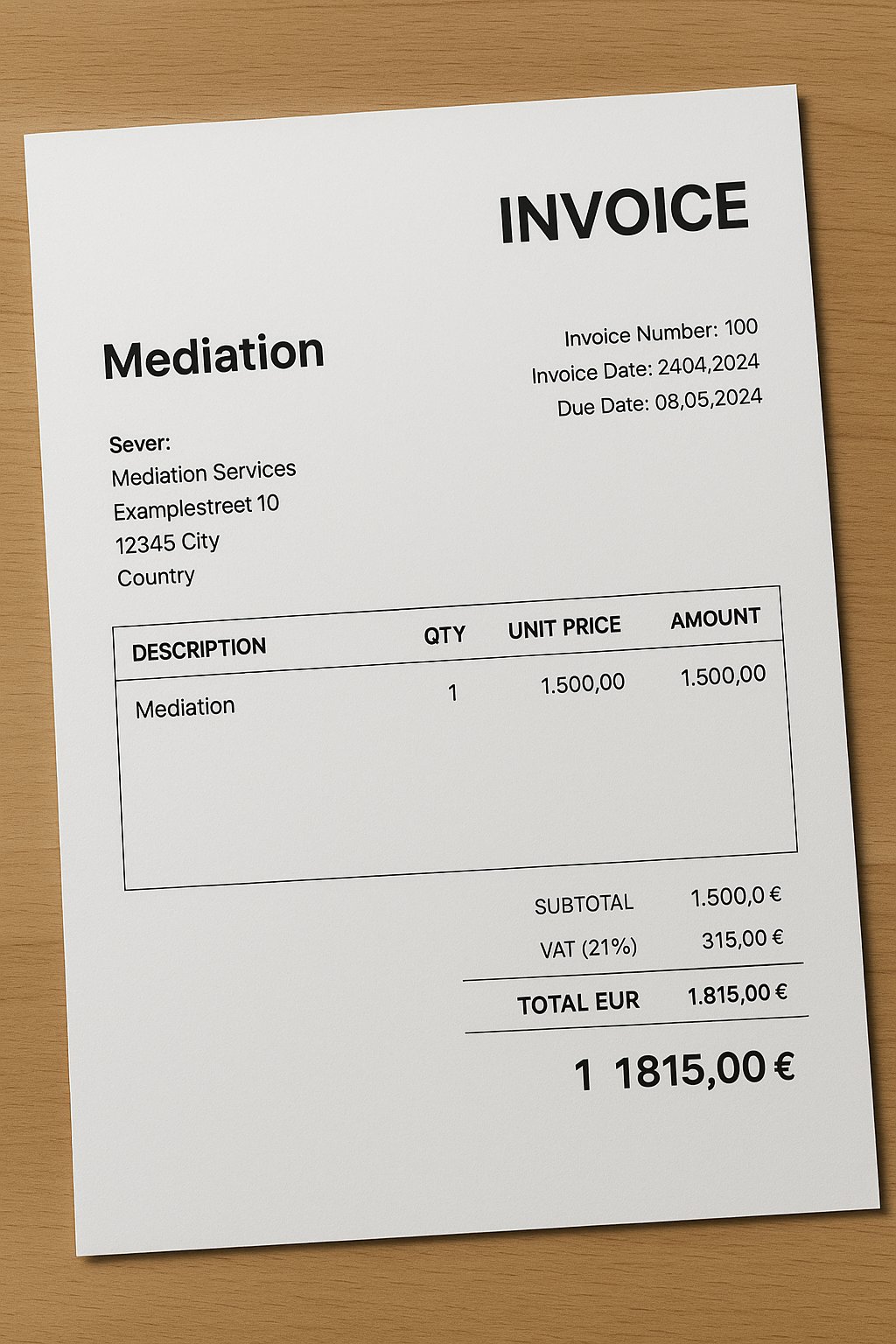Who pays for mediation?

One of the most common questions about mediation is: who is responsible for the costs? The answer depends on the situation and the parties involved. In this article, we explain how mediation costs are typically handled in the Netherlands.
The most common payment arrangement: equal division
In most cases, mediation costs are split equally between the participants. This is the standard when both parties cover their own costs. However, it is possible to change this arrangement if both parties agree on a different payment structure.
Legal aid and mediation costs
If one or both parties qualify for legal aid, the cost of mediation can change. Legal aid is available for those with lower incomes and can significantly reduce mediation fees. The Dutch Legal Aid Board (Raad voor Rechtsbijstand) determines eligibility based on the participant’s living situation and income from two years ago.
For mediation in 2025, eligibility depends on your living situation in 2025 and your income from 2023. Here are the income thresholds:
-
Living alone: To qualify for legal aid, your gross income in 2023 must be below €23,601. If it was higher, you will not qualify.
-
Living with a partner or children: If you live with a partner or children, your combined gross income (or you and your partner’s income) must be under €46,900 in 2023 to qualify.
If both parties qualify for legal aid, they will each pay their own contribution. The mediator will apply for legal aid and inform participants if additional documents are needed.
What happens if only one party qualifies for legal aid?
If only one party qualifies for legal aid, that person pays their own contribution. The other party, who does not qualify, must agree with the mediator on how to cover the costs. Typically, the non-qualifying party pays a reduced fee, usually half of the standard hourly or fixed fee, depending on the situation.
Mediation in employment law conflicts
In employment law disputes, it is common for the employer to cover the full cost of mediation. Many organisations view mediation as an investment in employee well-being, productivity, and overall organisational health. While employers are not legally required to pay for mediation, it is generally seen as good practice and is often offered as a benefit to employees.
Mediation with legal insurance
Some people have legal insurance that covers mediation costs. How these costs are handled depends on the insurance policy. Some policies offer a lower fee or may cover the costs entirely if one party has insurance and the other does not. This arrangement is based on the understanding that mediation is often the most cost-effective and time-efficient way to resolve disputes.
Conclusion
Mediation costs in the Netherlands are not fixed. They vary depending on factors such as income, legal aid eligibility, and the type of dispute. In most cases, costs are split equally. However, if legal aid or insurance is involved, the payment structure may differ. In employment law cases, employers often cover the costs.
It’s essential to understand how mediation costs work before starting the process. Mediation can be a cost-effective way to resolve disputes. Knowing who is responsible for the fees will help you plan ahead.
For more details on the costs of legal professionals, please refer to our article on legal costs.
Disclaimer: The information provided on this website is for general informational purposes only and is not legally binding. Although we strive for accuracy, the content may contain errors. If you notice any mistakes, please let us know by contacting us via the contact form located at the bottom of the page.
Picture : Created by Sora/ ChatGPT

